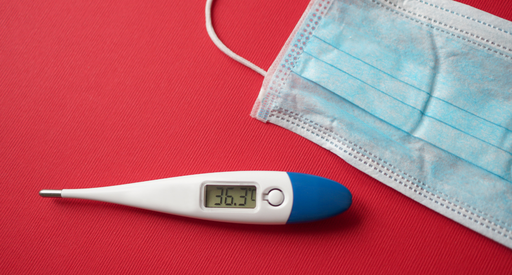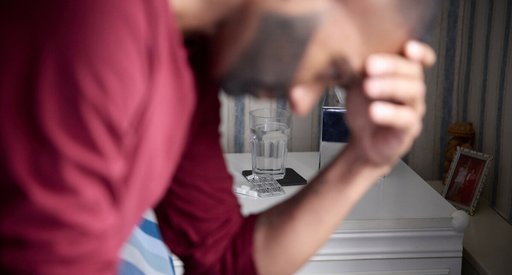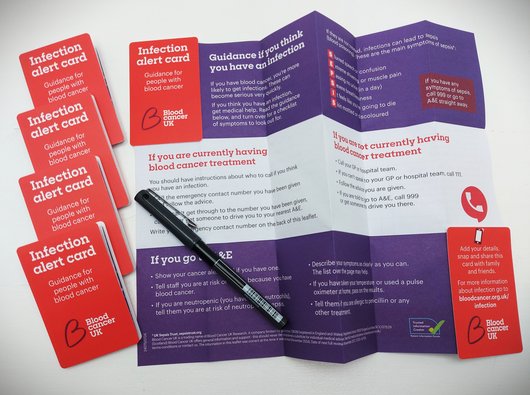Infection, neutropenia and sepsis
Read our essential information about what to look out for and what to do if you have blood cancer and think you have an infection.

Blood cancer and infection
Find out why people with blood cancer are at risk from infection and sepsis, and what questions to ask your hospital team about your personal level of risk.
Am I at risk?

Symptoms and what to do
An infection can turn into an emergency if you have blood cancer. So it's vital to know the symptoms of infection and what to do if you spot any.
Infection symptoms

What to say in A&E
Find out what happens if you need to go to Accident and Emergency with a suspected infection, and what to say when you get there.
If you visit A&E

Neutropenia and sepsis
Find out how what neutropenia is and how it puts you particular risk of infection and sepsis. Learn how to manage infection risk if you're neutropenic.
Find out more

Managing your infection risk
There are ways to manage your risk of infection. These include medicines, vaccinations and carefully following general hygiene guidelines.
Lower your risk

Living with infection risk
It's important to find a balance between staying safe and getting on with your life. Find out how to make your own decisions and what to tell other people.
Finding a balance

Your questions answered
We get lots of questions about infection to our support line. Our Support Nurse Heidi answers some of the questions people have asked.
Infection Q&A

Protecting someone from infection
What if it's not you, but a family member or a friend who is at risk of infection? Learn how you can be supportive and help keep them safe.
How you can help
Your free infection alert card
Our credit-card sized guide includes:
- symptoms to look out for
- space to write your symptoms
- what to do if you have symptoms
- what to say if you go to A&E.
Order now for yourself, your family and friends

This information about infection, neutropenia and sepsis is accredited with the PIF TICK, the UK's only quality mark for trusted health information.
Last full review November 2024. Next full review due November 2027. We may make factual updates to the information between reviews.
We would like to thank Consultant Haematologists Dr Ailsa Holroyd and Dr Piers Patten, Lead Nurse Jodie Nightingill and Advanced Nurse Practitioner Amanda Lane for checking the clinical accuracy of this information, and Anthony, David, Emma, Gail, Jacquie, Jane, Jess, Kat, Kayleigh, Mat, Moira and Ritesh for supporting this project and sharing their experiences.
Many thanks also to Consultant Acute Physician Professor Matt Inada-Kim and NHS England for checking our page about What to say in A&E, and to specialist haematology dietitians Natasha Jones and Victoria Mace who checked Eating safely with neutropenia.
